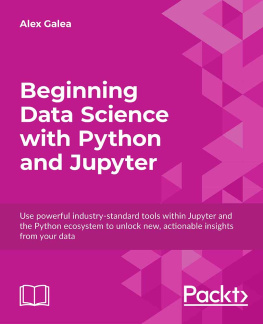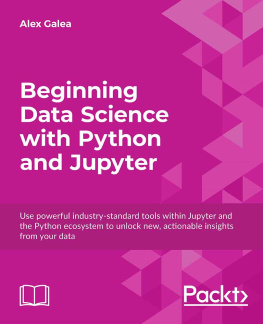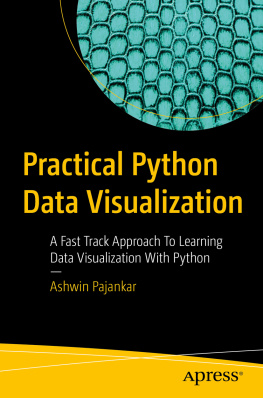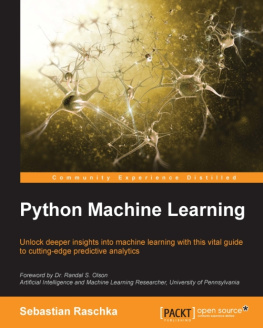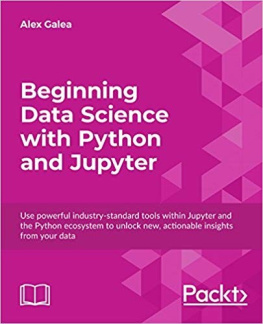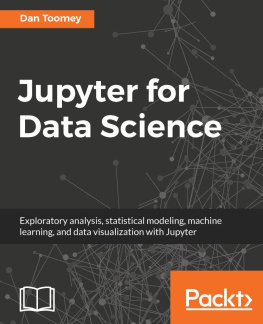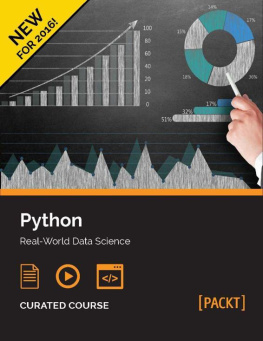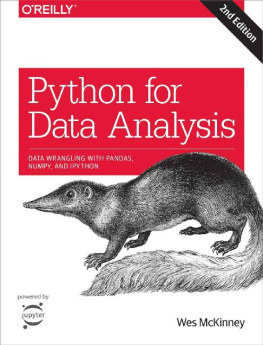Alex Galea - Beginning Data Science with Python and Jupyter: Use powerful tools to unlock actionable insights from data
Here you can read online Alex Galea - Beginning Data Science with Python and Jupyter: Use powerful tools to unlock actionable insights from data full text of the book (entire story) in english for free. Download pdf and epub, get meaning, cover and reviews about this ebook. year: 2018, publisher: Packt Publishing, genre: Home and family. Description of the work, (preface) as well as reviews are available. Best literature library LitArk.com created for fans of good reading and offers a wide selection of genres:
Romance novel
Science fiction
Adventure
Detective
Science
History
Home and family
Prose
Art
Politics
Computer
Non-fiction
Religion
Business
Children
Humor
Choose a favorite category and find really read worthwhile books. Enjoy immersion in the world of imagination, feel the emotions of the characters or learn something new for yourself, make an fascinating discovery.
- Book:Beginning Data Science with Python and Jupyter: Use powerful tools to unlock actionable insights from data
- Author:
- Publisher:Packt Publishing
- Genre:
- Year:2018
- Rating:4 / 5
- Favourites:Add to favourites
- Your mark:
Beginning Data Science with Python and Jupyter: Use powerful tools to unlock actionable insights from data: summary, description and annotation
We offer to read an annotation, description, summary or preface (depends on what the author of the book "Beginning Data Science with Python and Jupyter: Use powerful tools to unlock actionable insights from data" wrote himself). If you haven't found the necessary information about the book — write in the comments, we will try to find it.
Getting started with data science doesnt have to be an uphill battle. This step-by-step guide is ideal for beginners who know a little Python and are looking for a quick, fast-paced introduction.
Key Features- Get up and running with the Jupyter ecosystem and some example datasets
- Learn about key machine learning concepts like SVM, KNN classifiers and Random Forests
- Discover how you can use web scraping to gather and parse your own bespoke datasets
Get to grips with the skills you need for entry-level data science in this hands-on Python and Jupyter course. Youll learn about some of the most commonly used libraries that are part of the Anaconda distribution, and then explore machine learning models with real datasets to give you the skills and exposure you need for the real world. Well finish up by showing you how easy it can be to scrape and gather your own data from the open web, so that you can apply your new skills in an actionable context.
What you will learn- Identify potential areas of investigation and perform exploratory data analysis
- Plan a machine learning classification strategy and train classification models
- Use validation curves and dimensionality reduction to tune and enhance your models
- Scrape tabular data from web pages and transform it into Pandas DataFrames
- Create interactive, web-friendly visualizations to clearly communicate your findings
This book is ideal for professionals with a variety of job descriptions across large range of industries, given the rising popularity and accessibility of data science. Youll need some prior experience with Python, with any prior work with libraries like Pandas, Matplotlib and Pandas providing you a useful head start.
Table of Contents- Jupyter Fundamentals
- Data Cleaning and Advanced Machine Learning
- Web Scraping and Interactive Visualizations
Alex Galea: author's other books
Who wrote Beginning Data Science with Python and Jupyter: Use powerful tools to unlock actionable insights from data? Find out the surname, the name of the author of the book and a list of all author's works by series.

